The AMD Ryzen 9 7950X3D Review: AMD's Fastest Gaming Processor
by Gavin Bonshor on February 27, 2023 9:00 AM ESTCPU Benchmark Performance: Rendering And Encoding
Rendering tests, compared to others, are often a little more simple to digest and automate. All the tests put out some sort of score or time, usually in an obtainable way that makes it fairly easy to extract. These tests are some of the most strenuous in our list, due to the highly threaded nature of rendering and ray-tracing, and can draw a lot of power.
If a system is not properly configured to deal with the thermal requirements of the processor, the rendering benchmarks are where it would show most easily as the frequency drops over a sustained period of time. Most benchmarks in this case are re-run several times, and the key to this is having an appropriate idle/wait time between benchmarks to allow for temperatures to normalize from the last test.
One of the interesting elements of modern processors is encoding performance. This covers two main areas: encryption/decryption for secure data transfer, and video transcoding from one video format to another.
In the encrypt/decrypt scenario, how data is transferred and by what mechanism is pertinent to on-the-fly encryption of sensitive data - a process by which more modern devices are leaning to for software security.
We are using DDR5 memory on the Ryzen 9 7950X3D and the other Ryzen 7000 series we've tested. This also includes Intel's 13th and 12th Gen processors. We tested the aforementioned platforms with the following settings:
- DDR5-5600B CL46 - Intel 13th Gen
- DDR5-5200 CL44 - Ryzen 7000
- DDR5-4800 (B) CL40 - Intel 12th Gen
All other CPUs such as Ryzen 5000 and 3000 were tested at the relevant JEDEC settings as per the processor's individual memory support with DDR4.
Rendering
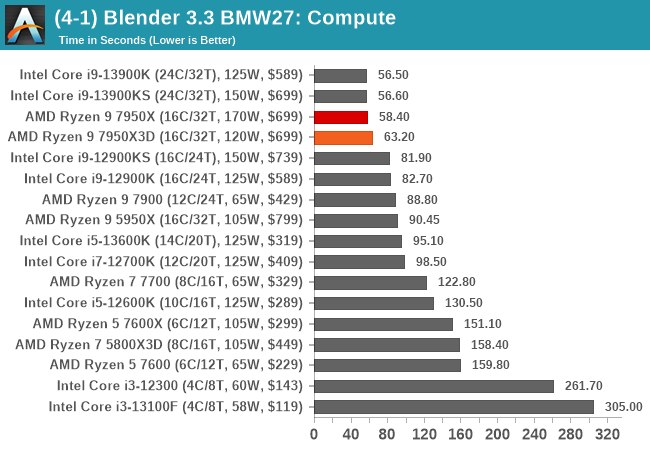
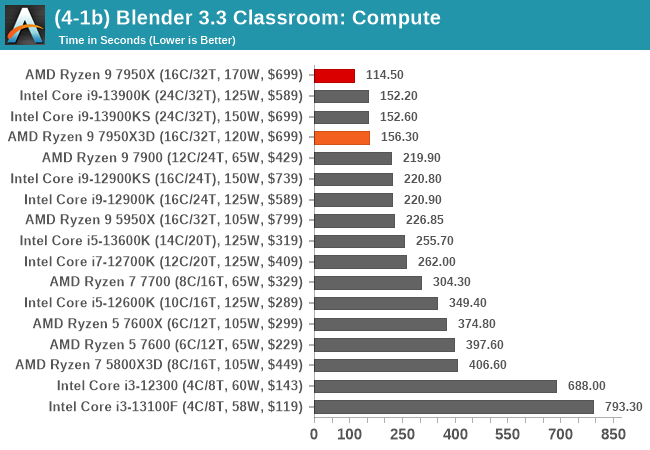
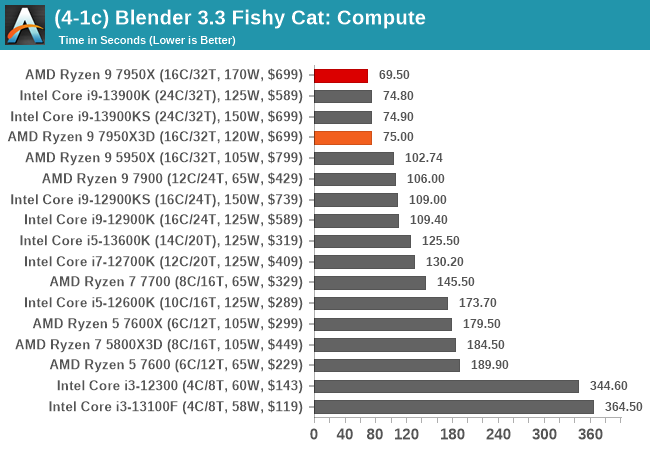
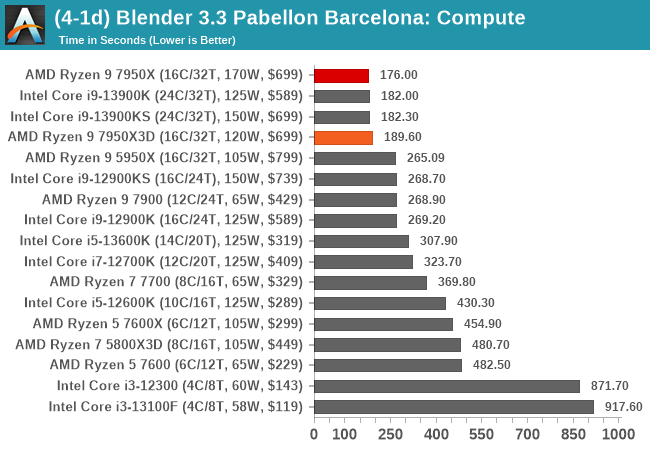
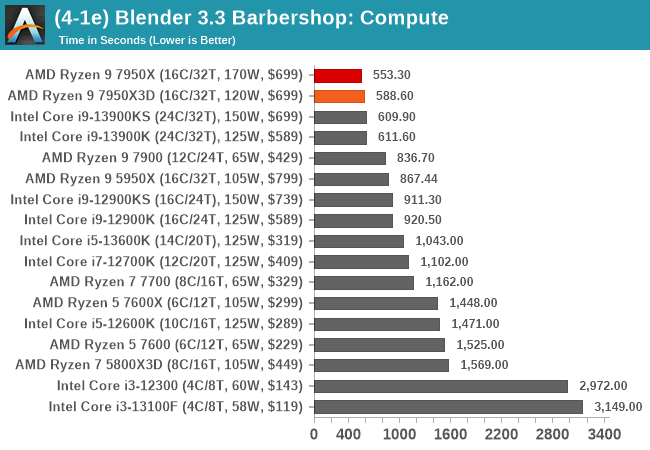
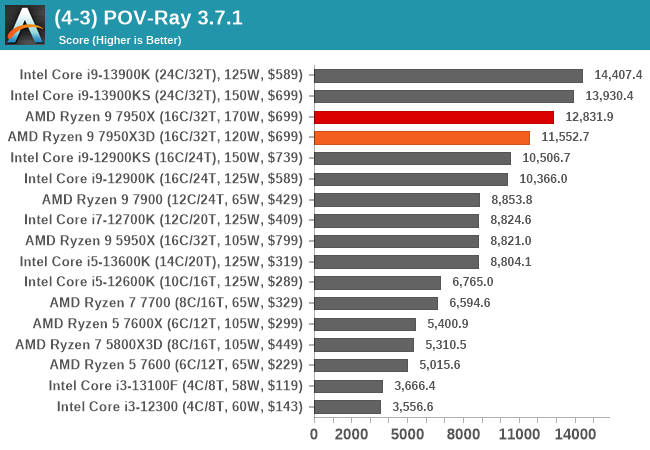
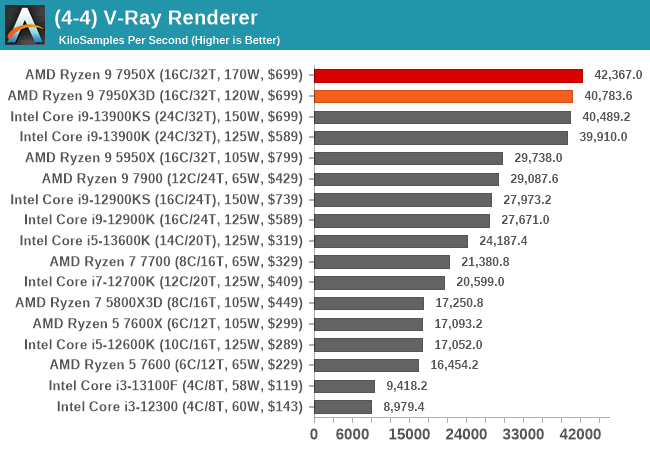
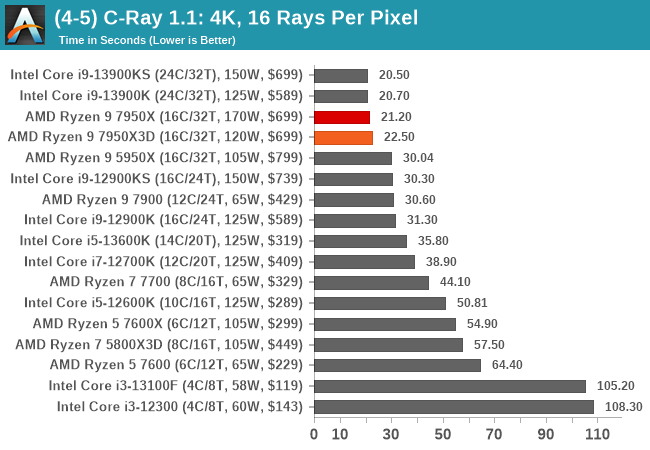
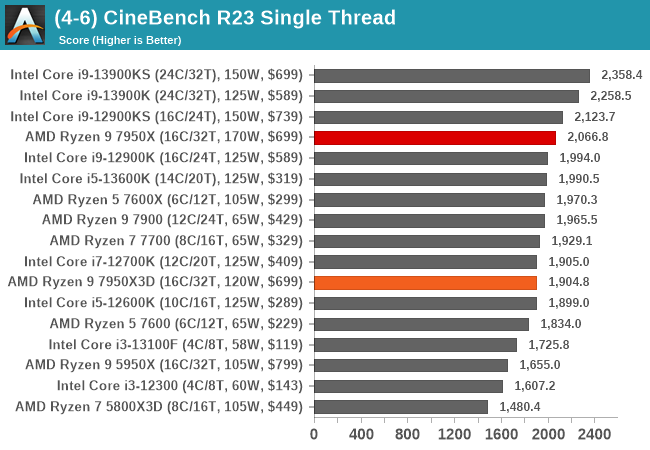
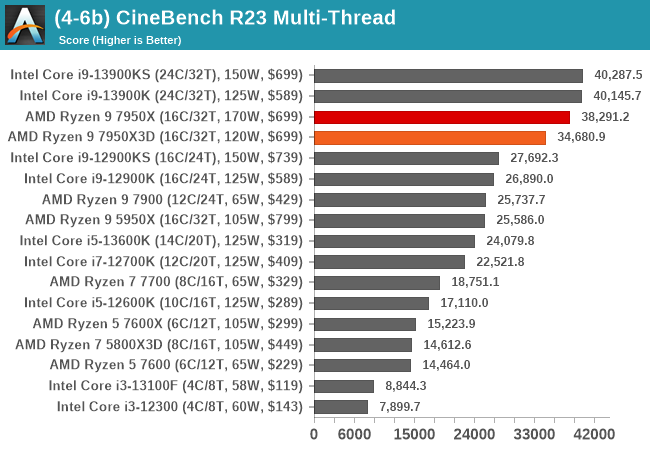
When it comes to rendering, the Ryzen 9 7950X3D doesn't quite hit the compute performance of the Ryzen 9 7950X, but it isn't too far off, given the discrepancies in power usage. It shows that the 7950X3D is more than capable of rendering workloads in an effective manner.
Encoding
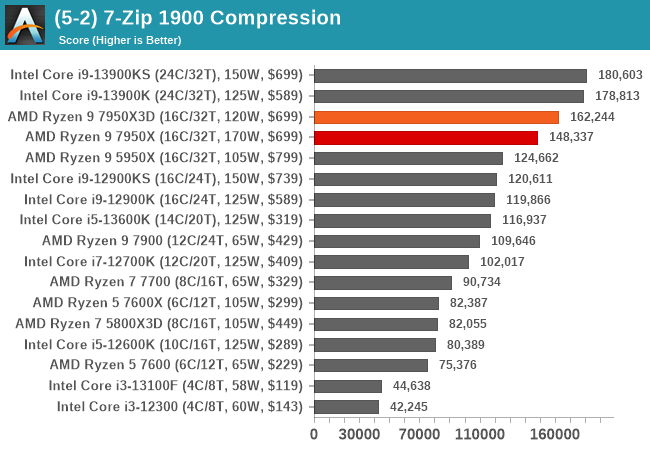
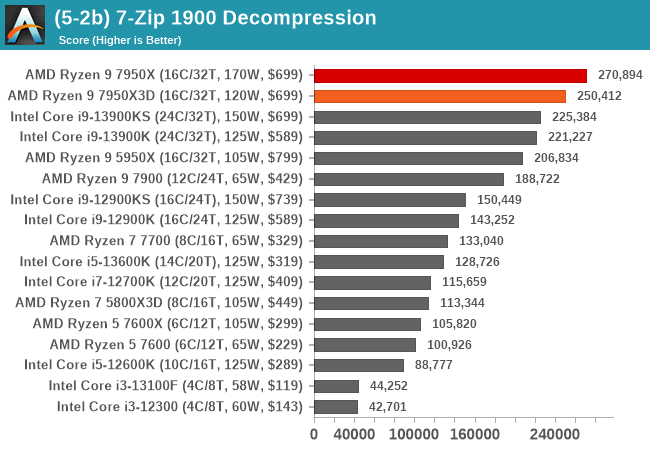
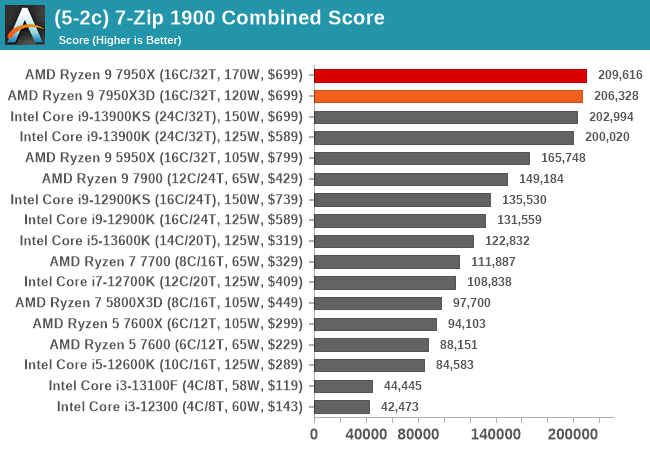
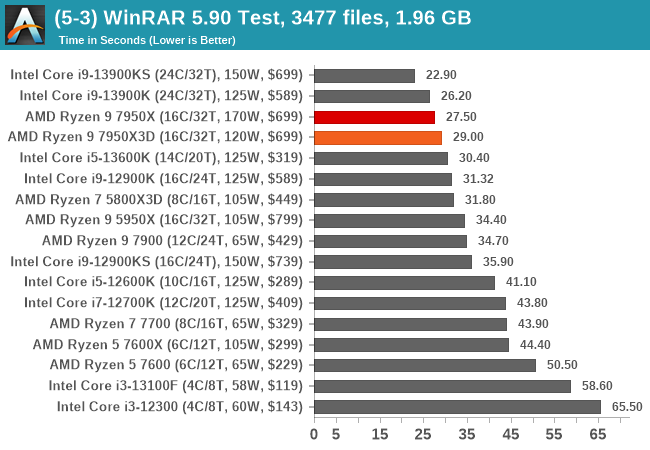
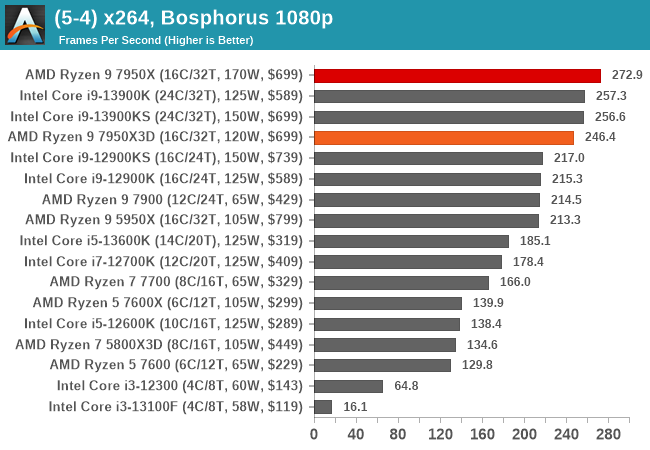
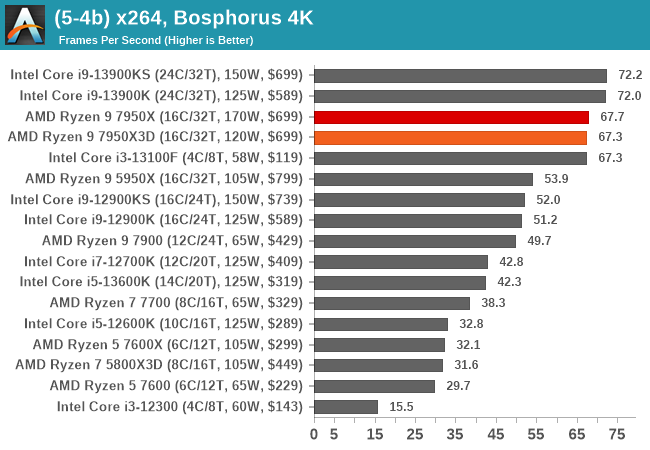
Our encoding section of the test suite is similar to other sections, where the 7950X is the faster and more power-hungry chip, which does output more performance. The Ryzen 9 7950X3D does however put in a respectable performance.










122 Comments
View All Comments
achinhorn - Monday, March 6, 2023 - link
This feels like there are gapping holes left to be examined, specifically with the scheduler/drivers and Windows 11.If you do these tests using manual BIOS settings, what changes?
This article is not helping me make a buying decision when I have this article only to compare current CPU offerings and there appear to be issues with the CPU software.
soltys - Monday, March 6, 2023 - link
I'm still wondering how well would this cpu perform having heavy load of both a game and non-game running at the same time - most typical of the latter being e.g. OBS using x264 at medium or slow presets.Would the threads be assigned correctly ? Or would that be a mess as both CCDs would be unparked.